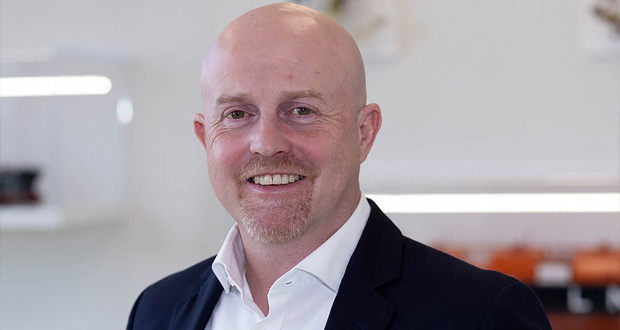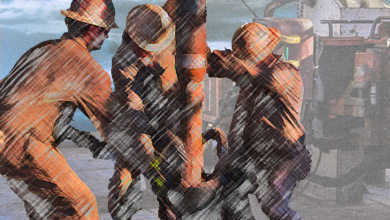Darren Sutherland, Borr Drilling: Championing for oilfield workers’ mental health

By Stephen Whitfield, Senior Editor
Darren Sutherland remembers the sense of community he felt while working in the field early in his career some 30 years ago. He recalls being a 22-year-old trainee drilling engineer working on the Magnus platform for Santa Fe Drilling in the UK North Sea. The crews would hang out together, watching movies in the designated theater area on the rig, or just chatting with one another in common areas.
If someone had a problem in their personal life, they had a group of people they could talk to – as Mr Sutherland, who now serves as VP – Europe and Africa at Borr Drilling, put it, “you have a Coke and a Mars bar, you talk things through, and you feel a bit better.”
These days, that community is harder to come by. Social media, streaming TV, and a whole host of technological advances have made it easier to stay connected with the world outside of the rig – while also isolating ourselves more than ever. The life of an offshore rig worker, he said, only compounds the effects that this connectivity and isolation can have on one’s mental health. When someone is struggling, they might not have anyone they feel they can lean on for support.
“Everything is instant. If you have a problem at home, it’s on your phone every night. You know about everything all the time, yet you can’t just jump in the car and go home to fix things. While bad mental health isn’t limited to the oil industry, the remote location and the distance from home – while still being close to everything – multiplies the impact that anything has on you.”
Mental health has become a top priority for Mr Sutherland over the past decade, as evidenced through his work as Chair of the IADC North Sea Chapter (NSC) in 2022-2023 spearheading IADC’s Mental Health and Well-Being Charter.
Back in the early 2010s, during Mr Sutherland’s first stint as NSC Chair, he came to notice a troubling trend. With the industry still recovering from a crippling downturn, he saw reports of oil workers taking their own lives because they could not find work. These were predominantly older men who had been in the industry for years and who had major financial commitments in their lives.
It wasn’t until 2022, when Mr Sutherland took on a second turn as NSC Chair, that he saw an opportunity to act. Asked to speak at the chapter’s annual Safety Awards Dinner, he decided to use his speech to highlight the need to help oilfield workers struggling with mental health issues. After that speech, the chapter kicked off multiple concerted efforts around mental health, including the development in 2023 of a 15-page white paper (“Changing Minds: Saving Lives – An urgent new approach to mental health in the North Sea”) that discussed ways to best support the mental health of workers on the UK Continental Shelf.
That same year, the chapter co-hosted the Mental Health in Energy Workshop, which featured a panel discussion of industry leaders and table sessions in which attendees discussed steps they can take within their own companies to better address mental health challenges.
Mr Sutherland said the workshop aimed to inspire honest, straightforward talk about the prevalence of mental health issues in the oil and gas industry.
“You’ve got to speak truth into these situations. If we’ve got a problem, we need to act on it. Today’s workforce expects it. They expect to be able to have this safe mental space. Especially for the younger workforce – it’s what they’re taught at school. So we need to address it head on. We can’t just let it fester in the background, hoping that something will happen or somebody else will come up with a solution,” he said.
Later in 2023, the North Sea Chapter released its Mental Health and Well-Being Charter, which created a shared framework that organizations can adopt to build work environments that are conducive to strong mental health among its workers. Several companies, from drilling contractors to OEMs to the Port of Aberdeen, have publicly pledged their support for the charter. The NSC also put together a workforce task group to promote the charter and continue discussion with industry stakeholders on finding continuous improvement.
While Mr Sutherland’s second term as NSC Chair ended in 2023, he continues to actively champion the charter and remains involved in the workforce task group. He said he hopes to help the chapter “build the charter community” through more workshops and events.
“When we started on this journey, I reckoned this would be a multi-year trajectory because changing culture is not easy. It takes time. So I’ll continue to do what I can. We’re doing our best to make sure companies and individuals are as best prepared as they can be.” DC
Click here to learn more about the Mental Health in Energy initiative.



